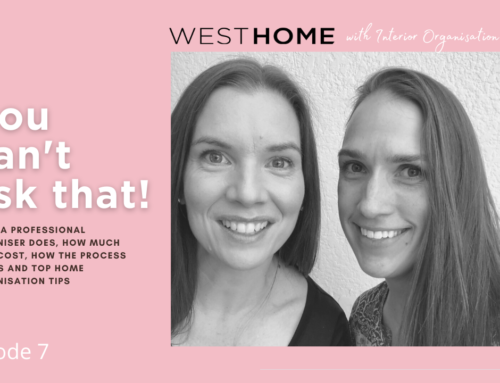Just recently I’ve had to swing into gear in organising my son’s lunchbox now he has started primary school.
I’ve always been very conscious about food waste and packaging waste…. in fact I am so passionate about sustainability that it’s a lifestyle as well as my day job.
But packing the lunchbox has challenged me to think even more about food waste (i.e. only pack enough to fill him up and to limit discarding of leftovers), the necessity of packaging and how we can role model for our kids to champion a waste-free (or much reduced!) future.
So the time feels right to crank out an article about how to reduce waste in the home. I chatted to Fiona who is super active in the Zero Waste Westies Facebook Group…. the home of all good waste-based tips and inspo.
Here’s some practical advice from Fiona:
Reducing your waste at home can seem overwhelming at the start. That doesn’t mean you shouldn’t try though. Once you have created new habits they will be the new norm.
The best place to start is to think about what enters your home. It’s so hard to avoid plastic altogether when you shop at any of the big supermarkets, but there are some simple but impactful things you can do.
Buying larger sizes reduces the overall packaging, i.e. a 1 kilogram tub of yoghurt uses far less plastic that small tubs or pouches. If you are taking small ones to school or work, it’s super quick to put them in the little plastic containers you no doubt accumulate. You can do this with chips, biscuits and other snacks too.
Buy local to reduce food miles or transporting in general, where you can. An even easier one is not buying fruit and vegetables that are packaged. Yes, they are convenient, but they are unnecessary. Let the apples roll free! No need to bag them either.
There are lots of bulk food suppliers around that you can shop at too. You can bring your own containers, or use theirs and fill them only with what you need. This can save on throwing out food because you had to buy a large quantity. Some Westie go to’s are: EKA in Seddon, Essentials Bulk Quality Food in Point Cook, The Source Bulk Foods, Amira Food Wholesalers in Newport and LoveLuvo in Seddon for cleaning products and shampoo (they are also a social enterprise). And a new addition to the scene is Roving Refills providing a mobile liquid detergent refill service.
Buy furniture and clothes that will last. Quality over quantity. When you are considering replacing furniture, homewares or clothes, consider whether it could be reused by local charities such as West Welcome Wagon.
As the first principle, reducing is the best way to look after our planet. The next is of course to reuse. You can reuse, re-purpose and re-home lots of things like glass jars and plastic bottles. If you won’t reuse, you won’t have to look too far to find someone who will.
Recycling is great, but also, not great. It’s unclear if recycling in Australia is happening at the moment. Absolutely keep using your roadside recycling (and the public recycling bins too) but reduce and reuse is better. Keeping your soft plastic and putting them in the specific bins at Coles and Woolies for RedCycle is super easy. The recycling plant for this is in Altona, so they aren’t travelling far.
You can keep your food waste out of landfill (where it becomes an awful green house gas, contributing to climate change) by having a worm farm or a compost bin at home. If this isn’t practical for you, sharewaste.com can help you find someone who can take it off your hands.
There’s so much more you can do, but it’s good to remember that every little bit counts.
If this article leaves you wanting more advice on how to reduce waste jump over to the Zero Waste Westies Facebook Group.






